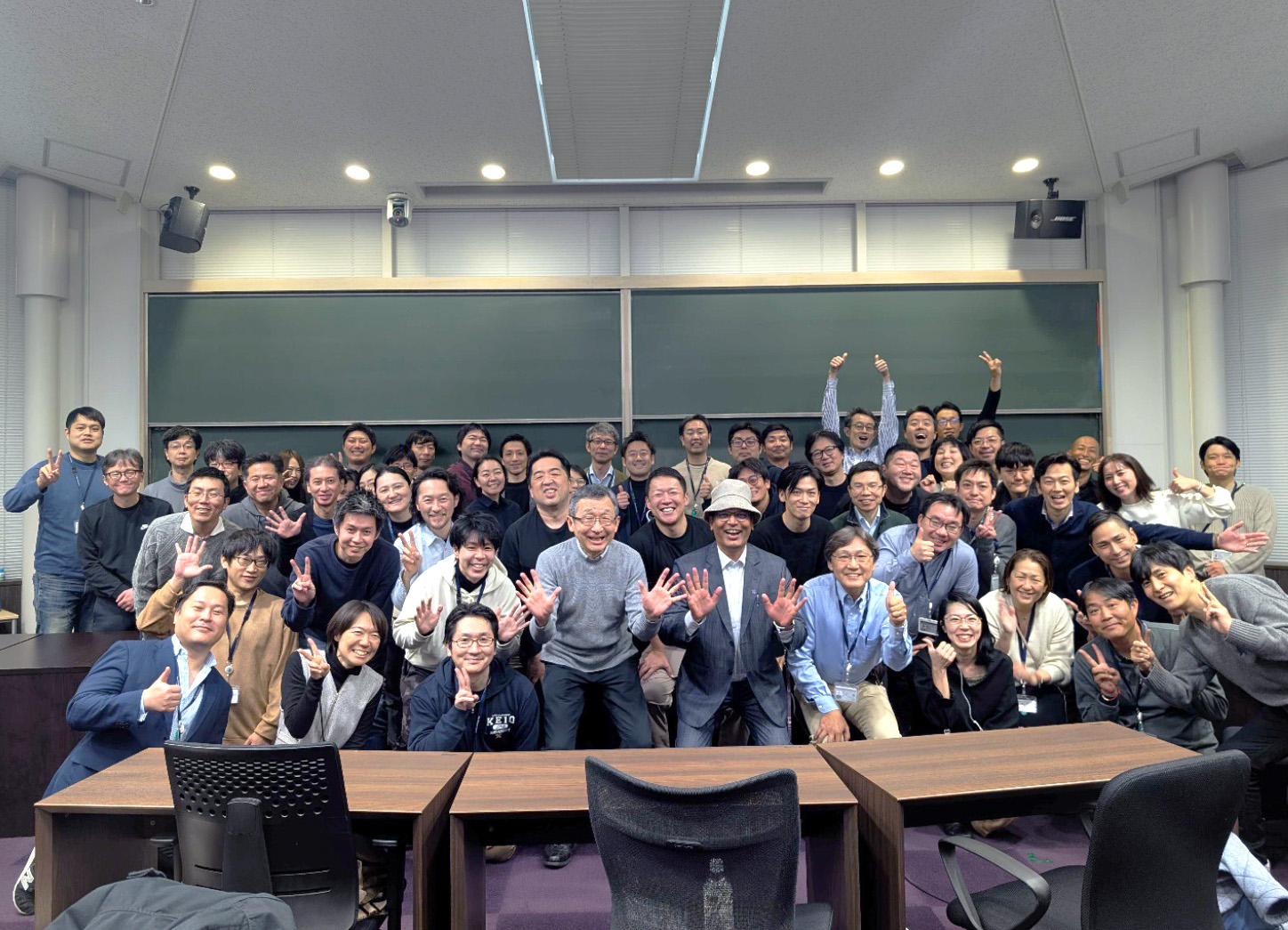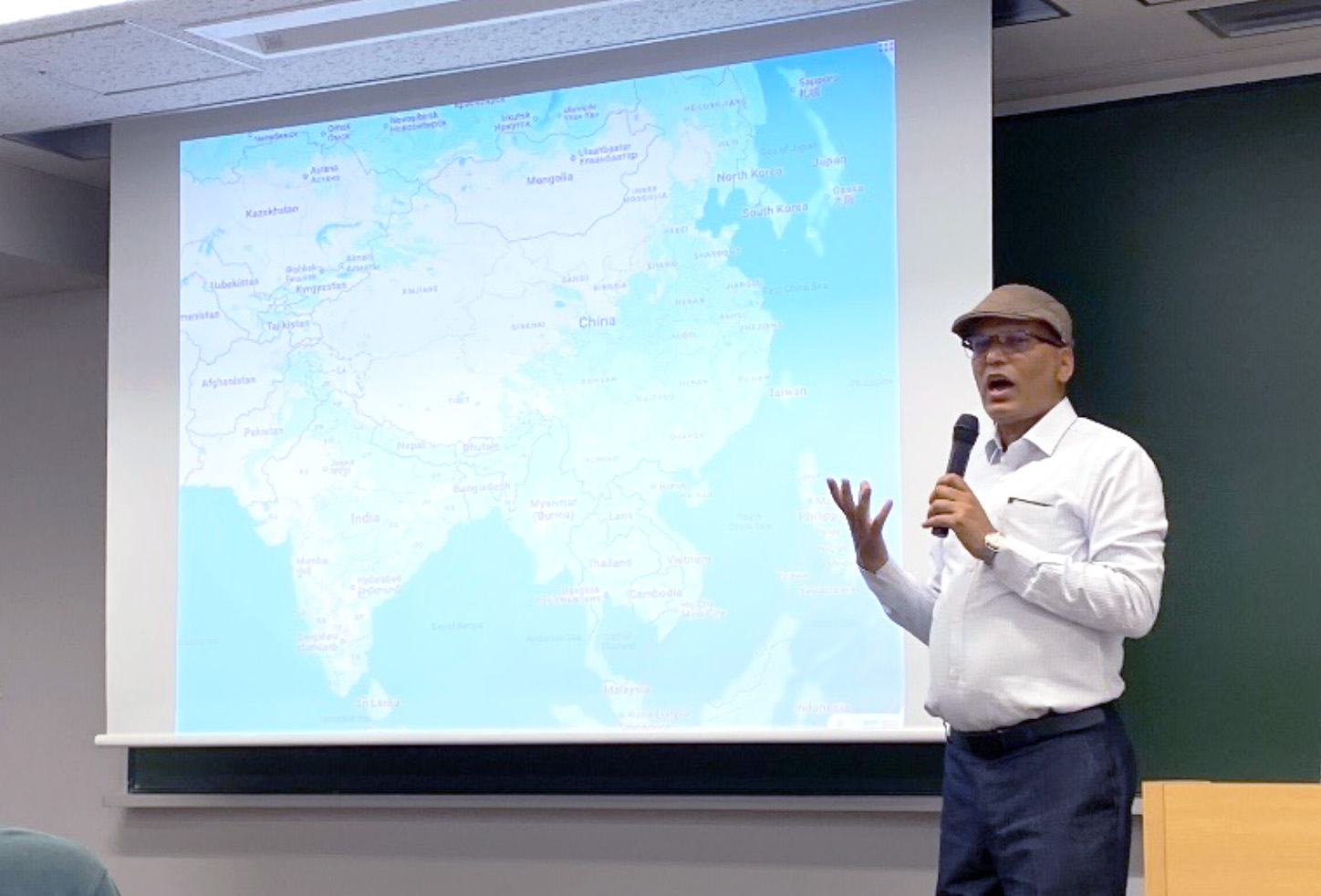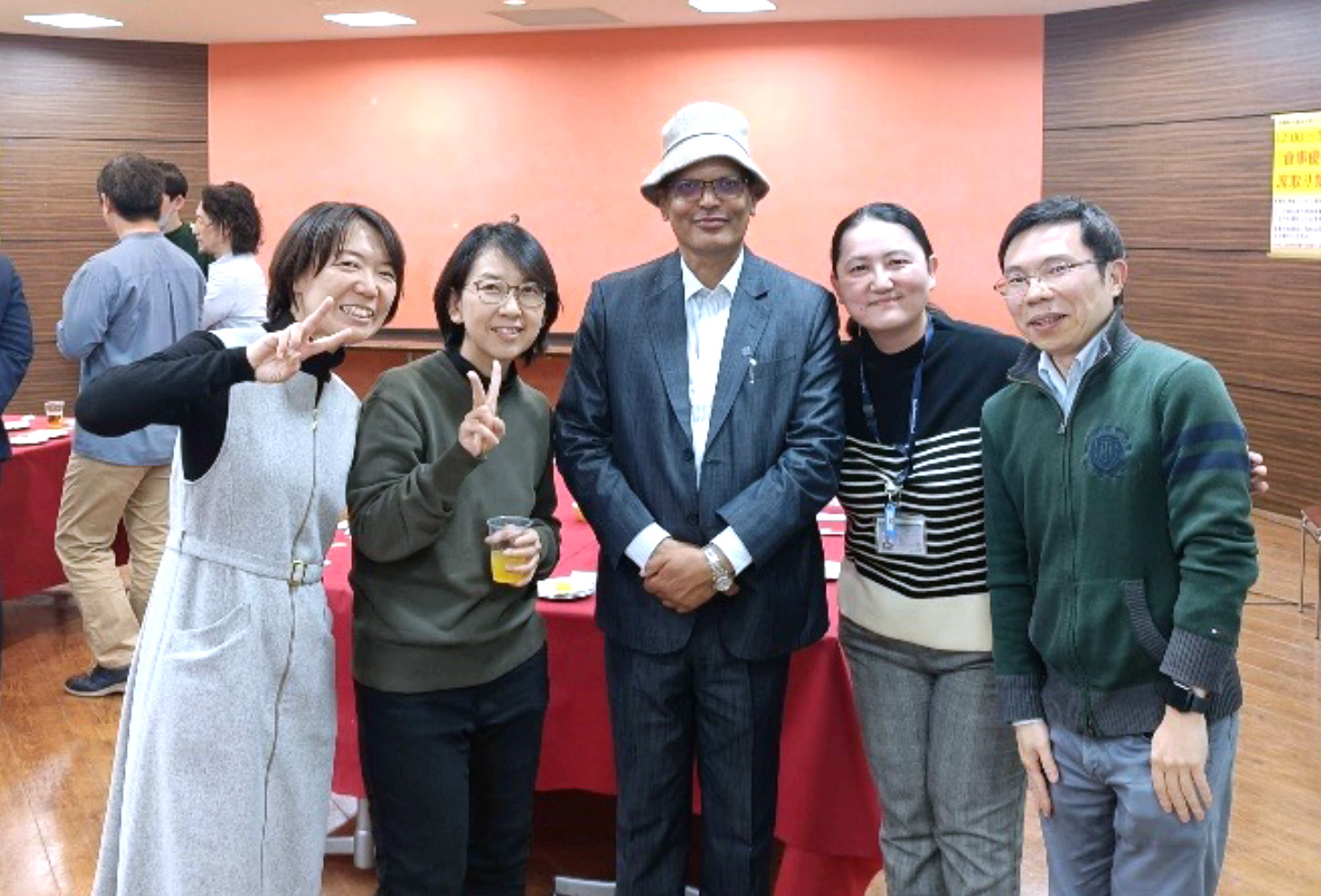【EMBA】第二回 グローバル経営(ミッドウェスト大学 Dhruba Kumar Gautam教授ご登壇)の講義が行われました
2025年01月07日
【EMBA】第二回 グローバル経営(ミッドウェスト大学 Dhruba Kumar Gautam教授ご登壇)の講義が行われました
―多元的な国際経営理論を求めて:ネパールの教授による特別授業―

2024年12月13日から15日までの2.5日間、慶應義塾大学ビジネス・スクール(KBS)のExecutive MBAプログラムにおいて、ネパールから著名な教授をお招きし、グローバル経営に関する特別講義が実施されました。この講義では、TCS(インドTATAグループ日本法人)、ダイキンインディア、Forta Furniture(ルーマニア家具メーカ)のケース、そしてビジネスにおける異文化コミュニケーションをテーマに、新興市場における経営戦略や国際市場での課題について深く議論が行われました。
授業の内容と目的
今回登壇したDhruba Kumar Gautam教授は、ネパールのミッドウェスト大学の副学長兼戦略経営学教授であり、多彩な国際的研究・教育経験を持っていらっしゃいます。今回のセミナーでは、「欧米の国際経営理論や戦略理論は、アジアの国々にそのまま適用できないのではないか。アジアの国々にはそれぞれ独自の文脈があり、その違いを考慮しないまま欧米の理論を鵜吞みにしていては、理論が本当に役立つことはない」という問題意識の下で展開されました。
そのため、本授業では以下のテーマを中心に議論が進められました。要点は下記の3つです。
- 新興市場でのクロスボーダー戦略を成功させる要因:ケーススタディとして、インドタタグループの日本進出、インド市場におけるダイキンの事例、ルーマニア家具メーカの他国進出を分析。
- 地政学と事業戦略の関係:企業がグローバル展開を図る際の地政学的影響の理解。
- 文化的相違の克服方法:異文化間の経営スタイルの違いをどのように乗り越えるか。
Gautam教授の講義とディスカッション
教授は、豊富な国際経験と理論的な知見をもとに、新興国企業が国際市場で直面するさまざまな課題を解説しました。特に、文化的・経済的・地理的距離(CAGEモデル)を用いた分析や、戦略的人事管理(Strategic HRM)の視点からの考察は、受講生にとって非常に有意義なものでした。また、授業ではファイブ・フォース分析やPESTLE分析などの伝統的フレームワークを改めて活用し、実際の企業ケースに基づいたディスカッションが展開されました。各国の文化や市場特性を考慮しながら、参加者は活発に意見交換を行いました。
Tata Consultancy Services Limited (TCS)
テーマ: 日本市場参入における戦略と文化的障壁
このケースを通じて、異なる言語や文化、商習慣を持つ市場に参入する際の重要なポイントを学びました。特に、現地企業とのパートナーシップが、そういった言語や文化、商習慣の壁を乗り越え、現地市場での成功の可能性を高める戦略であることを実感しました。
Daikin Airconditioning India Pvt Ltd
テーマ: インド市場での事業展開と「"インド"・プラス・ワン」戦略
このケースからは、新興市場でのビジネス展開において、経営者や人材の現地化が競争優位性の確立に不可欠であると学びました。現地の文化や言語、商習慣を深く理解する経営陣を配置することで、市場適応力を高め、地政学的リスクにも柔軟に対応できることが示されました。現地化を進めることで、グローバル市場における持続的な成長が可能になるという実践的な知見を得ることができました。
Forta Furniture
テーマ: ルーマニア企業の国際市場進出戦略
このケースではContext(市場背景)、Competition(競合)、Company(企業能力)、Customers(顧客)、Collaboration(協業)といった5つのC分析を通じて、国際市場への進出の是非を体系的に評価する手法を学びました。また、新興国でのB2G(政府)の重要性や新興国から他国への進出戦略について議論しました。
Building Cross-cultural Relationships
テーマ:他国文化の理解
ここではインド、マレーシア、米国、ネパールの各国の職場における文化の側面と日本との違いについて議論しました。文化は単一のものではなく、多様で、混ざり合い希薄になる、あるいはそこから新たな文化が生まれ、更に時間と共に変化していくなど、他のカルチャーを理解する重要性を学びました。
今回の特別講義は、普段企業の第一線で管理職として活躍するEMBA学生にとって、グローバル経営の現場で直面するリアルな課題を理解し、自らの経験と照らし合わせて多角的な戦略を考察する貴重な機会となりました。異文化間の経営や国際市場への適応戦略に関する示唆に富んだ学びを通じ、今後の意思決定やリーダーシップに活かせる実践知を深めることができました。KBSでは今後も、国際的な視座を広げ、実務に直結するプログラムを提供し続けていきます。
Toward Pluralistic International Management Theories: A Special Lecture by a Professor from Nepal
From December 13 to 15, 2024, over a span of 2.5 days, the Keio Business School (KBS) Executive MBA program hosted a special lecture on global management, delivered by a renowned professor from Nepal. This lecture delved into themes such as cross-cultural communication in business and strategies for emerging markets, featuring case studies on TCS (India's Tata Group in Japan), Daikin India, and Forta Furniture (a Romanian furniture manufacturer). Participants engaged in in-depth discussions about strategic management challenges in international markets.
Lecture Overview and Objectives
The lecture was conducted by Professor Dhruba Kumar Gautam, Vice Chancellor and Professor of Strategic Management at Mid-West University in Nepal. Drawing from his extensive international research and teaching experience, Professor Gautam challenged the assumption that Western theories of international management and strategy are universally applicable. He argued that Asian countries have unique contexts that demand tailored approaches, emphasizing that blind adherence to Western theories may hinder their practical relevance in non-Western settings.
Therefore, the session focused on three key themes:
- Success factors for cross-border strategies in emerging markets:Analysis of case studies, including Tata Group's entry into Japan, Daikin's strategies in India, and the international expansion of Forta Furniture.
- The relationship between geopolitics and business strategy:Understanding how geopolitical influences shape global business endeavors.
- Overcoming cultural differences:Strategies for bridging gaps in management styles across cultures.
Professor Gautam's Lecture and Discussions
Professor Gautam provided valuable insights into the challenges faced by emerging-market firms in global markets. Using the CAGE (Cultural, Administrative, Geographic, and Economic) framework, he shed light on how distance impacts international business strategies. His discussions also highlighted Strategic HRM (Human Resource Management) perspectives, offering students actionable knowledge. The session revisited classic frameworks like Five Forces and PESTLE analyses, which were applied to real-world business cases. Participants actively exchanged ideas, reflecting on cultural and market-specific characteristics of various countries.
1. Tata Consultancy Services Limited (TCS)
- Theme:Strategies and cultural barriers in entering the Japanese market
- Through this case, we learned important points about entering markets with different languages, cultures, and business practices. In particular, we realized that forming partnerships with local companies is a strategy that helps overcome this language, cultural, and business practice barriers, thereby increasing the potential for success in the local market.
2. Daikin Airconditioning India Pvt Ltd
- Theme:Business expansion in India and the "India" + 1 strategy
- This case taught us that localizing management and personnel is essential to establishing a competitive edge in emerging markets. By positioning management teams that deeply understand the local culture, language, and business practices, companies can enhance market adaptability and respond flexibly to geopolitical risks. This localization approach allows for sustainable growth in the global market, providing practical insights for future decision-making.
3. Forta Furniture
- Theme:International market entry strategies for a Romanian company
- Through this case, we learned to systematically evaluate the feasibility of international expansion using the 5C analysis: Context, Competition, Company capabilities, Customers, and Collaboration. Additionally, we discussed the importance of B2G (Business-to-Government) relations in emerging markets and explored strategies for expanding from emerging countries to other international markets.
4. Building Cross-cultural Relationships
- Theme:Understanding other cultures
- In this section, we discussed cultural aspects in the workplace across countries like India, Malaysia, the US, and Nepal, comparing them with Japan. We learned that culture is not a monolithic entity, but rather diverse, evolving, and sometimes blending, creating new forms. Understanding these cultural dynamics is crucial for successful international business.
This special lecture provided a valuable opportunity for EMBA students, who are usually active in senior management roles in their organizations, to understand the real challenges faced in global management and reflect on them in light of their own experiences, allowing them to explore multifaceted strategies. Through insightful learnings on intercultural management and international market adaptation strategies, we were able to deepen their practical knowledge, which can be applied to future decision-making and leadership. KBS will continue to offer programs that expand international perspectives and are directly relevant to real-world business practices.


